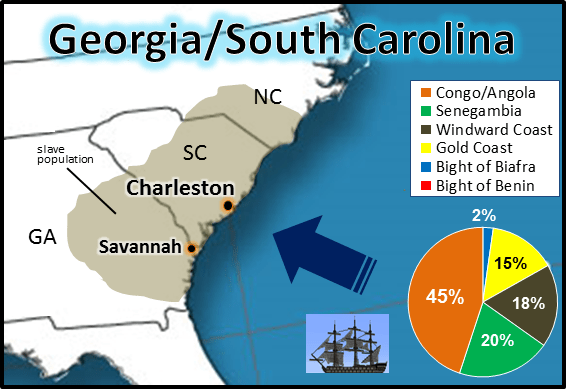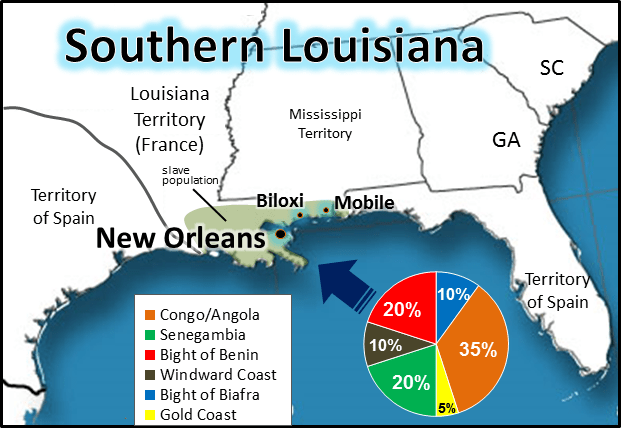get these nets
Veteran

Great book....I remembered the author from her appearance in the Soul Food Junkies documentary
Last edited:

This chapter is about Louisiana, but if you look at the map it also covers the general gulf region of the lower South
@im_sleep , would like to know your thoughts, when/ if you get a chance to compare the two chapters. The chapters are an extension of an old discussion we had about Southern foodways.
Thanks, glad you found it informative even if there were parts that you didn't like/ disagreed with.A lot of detail in both that I like. A lot of stuff I don’t like too lol. When I get time I’ll go over it more thoroughly.
I think the map is accurate for the most part though, I’m not gonna nitpick where I’d actually draw those lines further to lol. This is what I was getting at when I mentioned about the overlap between states. I think states are very poor boundaries when it comes to culture which is why I stress a regional outlook.
I also thought it was interesting that they attributed Gumbo and much of Louisiana’s cuisine to the Low Country, especially Gumbo since ALOT of people think it’s a Louisiana exclusive dish. I will say IMO it’s hard to really narrow down what was influence and what’s a coincidence considering both had similar ethnic makeups among Africans in a coastal setting anchored by major port cities.
BTW, are these from a culinary curriculum?

I also thought it was interesting that they attributed Gumbo and much of Louisiana’s cuisine to the Low Country, especially Gumbo since ALOT of people think it’s a Louisiana exclusive dish.


Right that’s how I’ve always looked at it. Now I do believe there are specific things that are unique(beignets, mirlitons, etc) but the majority is very similar if not the same, at least from an AA perspective.myself and @Supper have both pointed out that so-called uniqueness of new olreans cuisine is a myth because almost all of those dishes can be found in the carolinas/low country/sea islands but with another name. I don't think Low Country influenced Louisiana's food at all but it's more of a matter of having similar african stocks that provides the core influences. This was my point about the so-called "spanish tinge" (habanera/clave/tresillo) in New Orleans being of African origin and also existing in the Carolina's/Sea Islands.
see my post
https://www.thecoli.com/threads/alw...-was-new-orleans.676669/page-11#post-32540563


Thanks, glad you found it informative even if there were parts that you didn't like/ disagreed with.

The book the chapters were taken from is part of culinary school curriculum, and used in food history courses. Culture ties into history, especially food culture so these types of books are always interesting to me.
Ms Harris' book focuses on African American food history, whereas this other book focuses on general American food history, and the elements that contributed to it (including the African components). For the sake of this thread, they are covering the same topics but from different perspectives.
Because the authors are talking about history, they just established that gumbo was prepared in Carolinas BEFORE French had settled in Louisiana or brought enslaved Africans there.Those enslaved in Carolina region were familiar with the okra plants from their original home areas.
Okra was also indigenous to the areas of West Africa where some of the original West Africans taken to Louisiana are from, so it wouldn't have necessarily been new to them. I think the Louisiana chapter does a good job of explaining how that region put their own stamp on dishes because of all the cultural influences. Gumbo as prepared in Louisiana is distinct partially because of the Native American influence from that region and the use of a local plant to prepare it.
The French people and the priority that their culture has given to chefs,food,cuisine was also well detailed in the chapter. In 2019, the top chef in France is probably as famous there, as the Superbowl MVP is here.
=============================
Check out the distinctions made by Mrs. Harris from this page of HOTH
There's overlap of culture between states and regions of the South during slavery.
Her point about the systems of slavery being different were along the lines of what I was saying in the other thread. Location, nature of the plantation economy and the cash crop, Euro flag that flew over the area, the Euro church in charge of the area, areas of Africa the enslaved are from, local fauna and flora,etc,etc,etc affects the food culture of an area.
I remember reading this page of the book, and when I noticed that the authors of the other book had carved out the Appalachian region away from the Plantation South(just like Mrs. Harris did), that's when I decided to buy the book.
Thanks,and I appreciate discussing and debating topics with people who debate in good faith.Mrs. Harris’ point is exactly why I stress regional differences instead of a singular view on slavery or one that is simply defined by state borders.
BTW, I completely understood where you were coming from in our previous conversation. I absolutely understand and acknowledge the complexity of New Orleans/Louisiana’s food culture for all the reasons stated, however my issue was mainly with the way it was framed in that video you linked. It’s one thing to acknowledge the diversity but it’s another to divorce it from its primary source(AA’s), that just comes off disingenuous and trying hard to be different.
That’s why @Supper made the thread he made. I’ll say it again like I’ve said before, often I see people treat New Orleans like it developed in spite of AA culture instead of within it. Just to be clear I’ve never got that vibe or intention from you.
New Orleans is a special place, not just in America but in the diaspora as a whole, there’s no need to put extras on it to make that point.
myself and @Supper have both pointed out that so-called uniqueness of new olreans cuisine is a myth because almost all of those dishes can be found in the carolinas/low country/sea islands but with another name. I don't think Low Country influenced Louisiana's food at all but it's more of a matter of having similar african stocks that provides the core influences. This was my point about the so-called "spanish tinge" (habanera/clave/tresillo) in New Orleans being of African origin and also existing in the Carolina's/Sea Islands.
see my post
https://www.thecoli.com/threads/alw...-was-new-orleans.676669/page-11#post-32540563


myself and @Supper have both pointed out that so-called uniqueness of new olreans cuisine is a myth because almost all of those dishes can be found in the carolinas/low country/sea islands but with another name. I don't think Low Country influenced Louisiana's food at all but it's more of a matter of having similar african stocks that provides the core influences. This was my point about the so-called "spanish tinge" (habanera/clave/tresillo) in New Orleans being of African origin and also existing in the Carolina's/Sea Islands.
see my post
https://www.thecoli.com/threads/alw...-was-new-orleans.676669/page-11#post-32540563


ill jump in on this discussion later today..Right that’s how I’ve always looked at it. Now I do believe there are specific things that are unique(beignets, mirlitons, etc) but the majority is very similar if not the same, at least from an AA perspective.

this is an interesting clip. They are discussing gumbo and the host happens to be from South Carolina, and he's talking to iconic New Orleans chef Leah Chase. (she screams on him and it's funny)